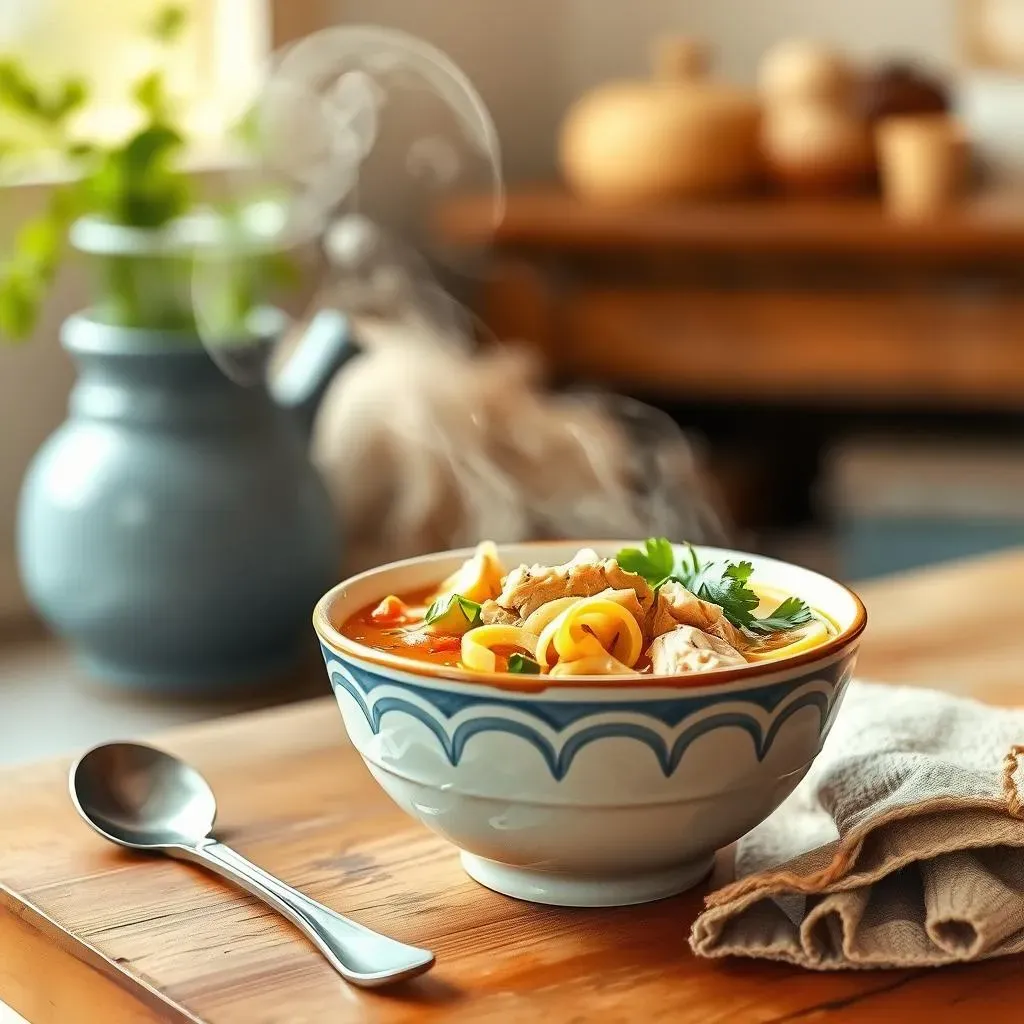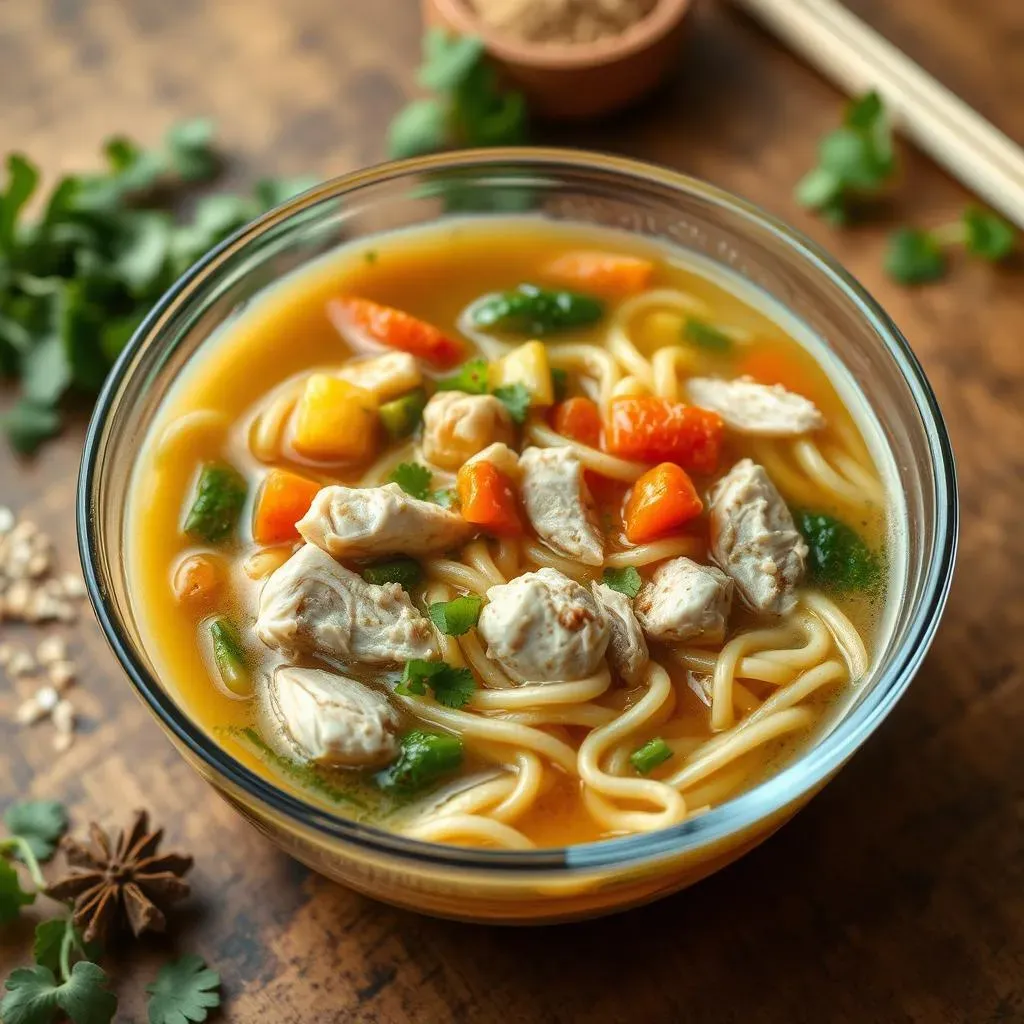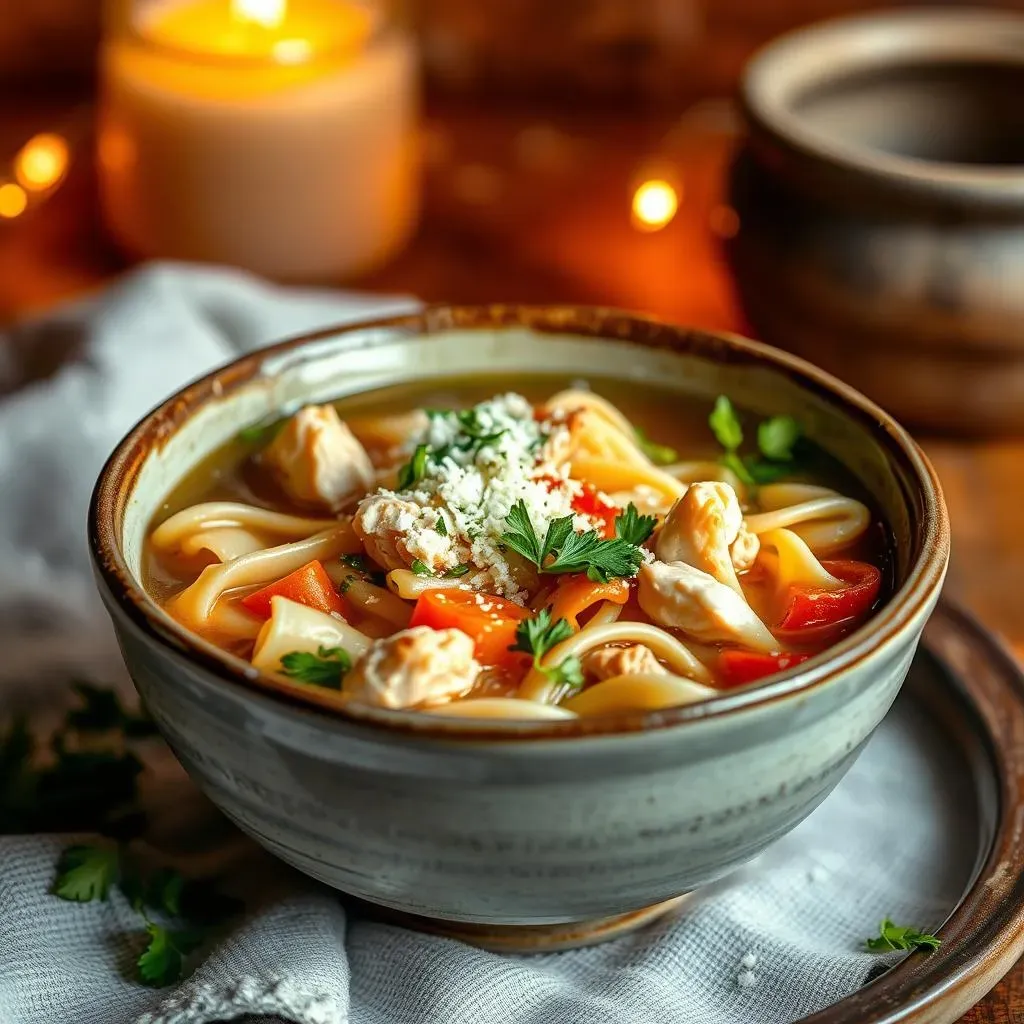Table of Contents
Feeling a bit under the weather, or just craving something warm and comforting while managing PCOS? You're not alone. Many of us with Polycystic Ovary Syndrome are always on the lookout for meals that are both satisfying and beneficial for our health. That's where chicken noodle soup comes in, a classic dish that can actually be a great choice for a PCOS-friendly diet. It's not just about soothing a cold; it's about choosing ingredients that support our overall well-being. This article will guide you through why chicken noodle soup is more than just a feel-good food, how to tweak it to make it perfect for your needs, and some clever tips to make the best bowl ever. We'll explore how this simple dish can be a part of your journey to managing PCOS symptoms and feeling your best. So, grab a spoon, and let's get started with this comforting bowl of goodness!
Why Chicken Noodle Soup is Great for PCOS

Why Chicken Noodle Soup is Great for PCOS
The Comfort Factor
Let's face it, sometimes you just need a hug in a bowl. That's exactly what chicken noodle soup offers. It's familiar, it's warm, and it's incredibly comforting. But beyond the cozy feeling, there's a genuine reason why it can be a good choice for those of us managing PCOS. When symptoms like fatigue or mood swings hit, a simple, nourishing meal can be a real game-changer. It's not about a magical cure, but rather a gentle way to support your body when it needs it most.
It's like a warm blanket on a chilly day – it won't solve all your problems, but it sure makes things a little better.
Nutrient Powerhouse
Now, don't get me wrong, not all chicken noodle soups are created equal. The key is in the ingredients. A good homemade version, loaded with lean protein from chicken, fiber from whole-grain noodles, and plenty of vitamins and minerals from veggies, can be a nutritional powerhouse. These are all things that can help manage PCOS symptoms. Protein helps keep you full and can aid in blood sugar regulation, fiber is great for digestion and can also help with blood sugar, and the veggies are packed with essential nutrients. This isn't about some fancy diet, it's about using simple ingredients to support your body.
Nutrient | Benefit for PCOS |
|---|---|
Lean Protein (Chicken) | Helps satiety, regulates blood sugar |
Fiber (Whole-grain noodles, veggies) | Aids digestion, helps blood sugar control |
Vitamins and Minerals (Veggies) | Supports overall health and hormone balance |
Easy on the System
Let's be honest, sometimes our digestive systems aren't our best friends. If you have PCOS, you might experience bloating or discomfort, and a heavy meal can make things worse. This is where chicken noodle soup shines, it is often gentle on the stomach and easy to digest. It's not too heavy, and the warm broth can be soothing. It’s a great option when you need something that won't upset your tummy. Plus, it's super versatile, so you can tweak it to your liking.
Making Your Chicken Noodle Soup PCOSFriendly

Making Your Chicken Noodle Soup PCOSFriendly
Choosing the Right Ingredients
Okay, so we know chicken noodle soup can be great, but let's make it even better for PCOS. It's all about making smart swaps. First up, the chicken. Go for lean cuts like chicken breast – they're packed with protein and lower in fat. Next, think about the noodles. Instead of regular white pasta, which can spike blood sugar, opt for whole-grain or even lentil-based noodles. They're higher in fiber, which is great for keeping blood sugar levels stable. And don't forget the veggies! Load up on non-starchy options like carrots, celery, zucchini, spinach, or even broccoli. The more the merrier! These veggies are packed with nutrients and fiber.
Lastly, let's talk about the broth. Choose low-sodium options or make your own, so you can control the salt content.
Smart Swaps for a Healthier Soup
Making a few swaps can turn your basic chicken noodle soup into a PCOS-friendly powerhouse. Instead of using regular oil, try olive oil, which has healthy fats. Also, think about adding some anti-inflammatory spices like turmeric or ginger. These little additions can make a big difference. The goal is to choose ingredients that nourish your body and help manage those pesky PCOS symptoms without sacrificing flavor. It's not about deprivation; it's about making informed choices that support your health goals.
Ingredient | PCOS-Friendly Swap |
|---|---|
Regular Pasta | Whole-grain or lentil-based noodles |
Regular chicken | Lean chicken breast |
High sodium broth | Low-sodium broth or homemade broth |
Regular oil | Olive oil |
Salt | Anti-inflammatory spices like turmeric or ginger |
Tips and Tricks for the Best PCOS Chicken Noodle Soup

Tips and Tricks for the Best PCOS Chicken Noodle Soup
Flavor Boosting Secrets
Alright, let's talk about making this soup taste amazing! Don't be shy with the herbs and spices. A little fresh thyme, rosemary, or even a bay leaf can take your soup from "meh" to "wow." And don't underestimate the power of a good sauté. Before adding the broth, cook your veggies with a little olive oil and some garlic. This will help bring out their natural sweetness and create a flavorful base for the soup. A squeeze of lemon juice at the end can brighten up the flavors and add a nice zest.
Another trick? Roast your chicken before adding it to the soup. Roasting adds a depth of flavor that you just can't get from boiling it. It's an extra step, but believe me, it's worth it.
Texture and Timing
Nobody likes mushy noodles, so timing is key. Add your noodles towards the end of the cooking process, and cook them until they're just tender. Overcooking them can make the whole soup feel a bit sad and soggy. If you're using whole-grain noodles, they might take a bit longer, so keep an eye on them. Also, consider adding some leafy greens, like spinach, at the very end. They'll wilt down nicely and add an extra boost of nutrients without getting overcooked.
If you're making a big batch, don't add all the noodles at once, or they'll soak up all the broth. Instead, add them to each bowl as you serve it. This will prevent soggy noodles and ensure the soup stays fresh.
Tip | Why it Matters |
|---|---|
Sauté Veggies | Builds a deeper flavor base |
Add Herbs and Spices | Enhances taste and adds complexity |
Time Noodles Right | Avoids mushy texture |
Add Leafy Greens Last | Keeps nutrients and texture |
Roast Chicken | Deeper, richer flavor |
